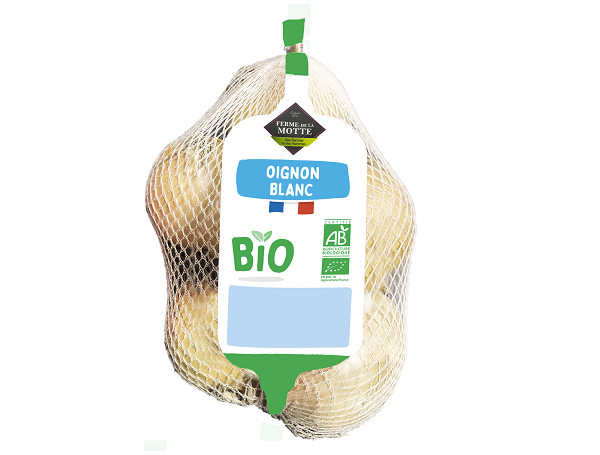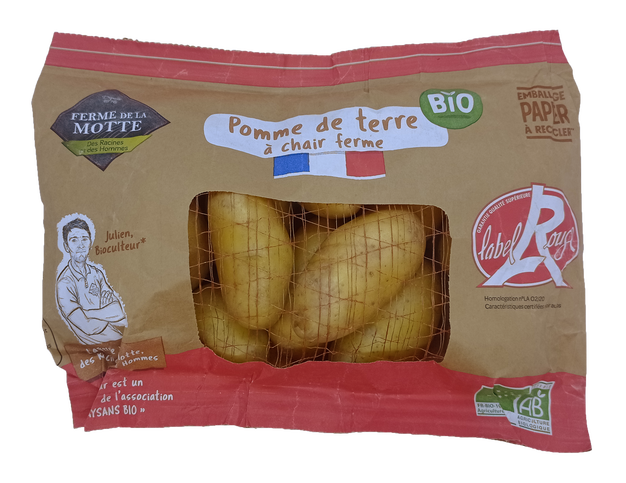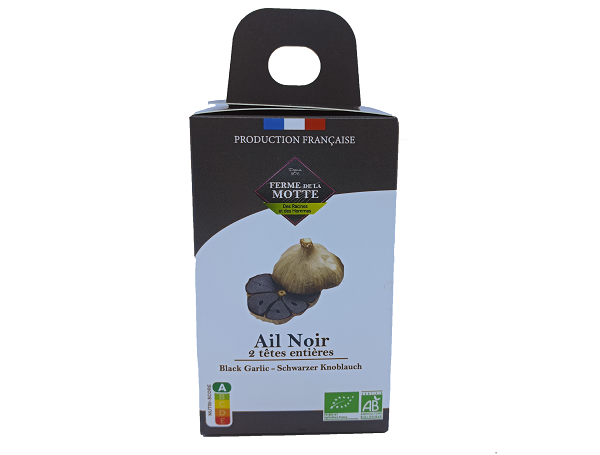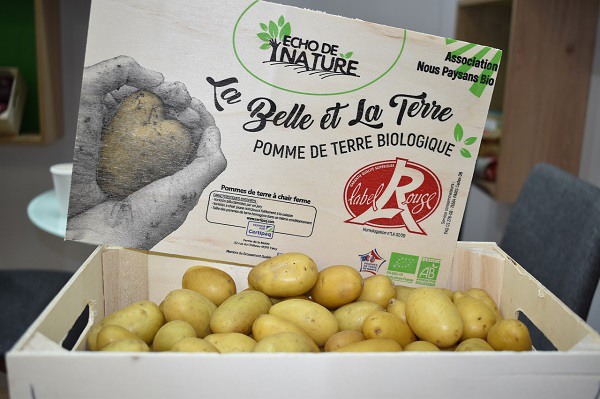Ferme de la Motte has been operated by the Lemaire family since 1967 in the Loire Valley. The farm specializes in fresh condiments, both conventional and organic (garlic, onion, shallot and echalion), and it also produces squash, potatoes and vegetables which are marketed exclusively within the specialized organic network, through the brands ‘Ferme de la Motte’ and ‘Echo de nature’. In 1997, Ferme de la Motte made the switch to organic farming, together with a neighboring organic farmer at first, and then with a conversion in 2001 of 80 hectares for onions, potatoes, red beets and squash. Around the same time, the old onion factory was converted into a packaging site entirely dedicated to their organic activity. The Ferme de la Motte products are available in supermarkets, wholesalers and in specialized organic networks.

The evolution of the organic sector has now slowed down considerably. All sectors are impacted, but the organic fruit and vegetables are particularly affected.
After several years of double-digit growth and a strong acceleration during the Covid pandemic, the organic sector is now experiencing difficulties. “The pandemic generated a boost in organic sales, but we are now back to the levels of 2018/2019,” explains Emilie Daquin, sales and marketing director. This situation is due to multiple factors, including the excess of supply in face of a declining demand. “Since 2019, hundreds or even thousands of farms have turned to organic agriculture, and making room for the newcomers has been a challenge. Today, the volumes have decreased and some of the producers who had converted to organic farming will not be able to continue on this path. The supply has exceeded the demand which, in turn, has dropped,” explains branch manager Cécile Perret. Some producers are even considering converting back to conventional farming. “The sluggish market has forced us to reduce our surfaces and our volumes.”

Another observation shared by many professionals of the sector is that organic products must now compete with numerous “third-way” labels that arrived on the market nearly 3 years ago, including the HEV label, Zero Pesticide Residue and the more local products. “The split between conventional and organic used to be more clear. Nowadays, consumers are confused by the multiplication of labels. A lot of communication work needs to be done in order to raise awareness among consumers and better explain what organic production means. We believe that this could really change the situation,” explains Emilie Daquin. According to Cécile Perret, “organic agriculture has always struggled to promote its assets. There is clearly a communication problem but more can be done in other areas as well. It is great that efforts have been made to improve conventional productions but organic farming still goes much further in its production methods and this must really be highlighted.” Since 2019, Ferme de la Motte is also certified HEV and has a range of products without residue of pesticides.

There is a clear lack of communication, but the decrease in purchasing power also plays a role in the decline in organic sales observed since 2021. Given the higher prices of organic products in the current inflationary context, consumers tend to turn to first-price products.
“This phenomenon is especially pronounced in supermarkets, where nearly 50% of the organic fruit and vegetables are marketed. The decline in volumes is accelerated by the decline in the supply of organic products in supermarkets. According to IRI, the decrease in supply first oscillated between -0.5 and -1.6% compared to the same period in 2021, and then accelerated from -3% to -4.6% and -7.1%, which is even faster than the decline in sales since May 2022. With this decrease in the visibility of organic products in stores, consumers naturally buy fewer organic products. We can clearly see that where there used to be a 90% presence of organic potatoes, for example, today the figures have dropped to 81% (source: France AgriMer).”
“Our clients are aware of the difficulties we encounter as producers and they are willing to support us,” explains Emilie Daquin. The partners of Ferme de la Motte have already referenced several innovations: organic French fries, organic Red Label potatoes, the first French organic white onion, as well as French organic black garlic. “And we are also thinking with them about new promotional offers to win back our consumers.”

Although a French specialist in condiments, Ferme de la Motte is also present outside of France, especially in Europe and the United States. “European consumers always have a preference for national products. The Germans, for example, will naturally first choose domestic organic products before turning to French products. And if price remains the number 1 criterion, the reputation of French products is also an advantage.
“France's strength lies in its terroir and the guarantees that certain labels such as PDO and PGI can provide. We are also renowned for the quality of our ‘Made in France’ products and we are the leading producers of shallots!”
For more information:
Ferme de la Motte
52, rue du Château, 41370 Talcy
Phone: +33 (0)2 54 81 44 22
Fax: +33 (0)2 54 81 44 20
[email protected]










